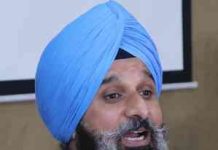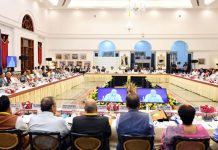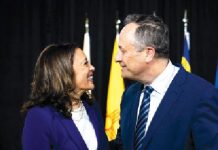
Putin-led Russia mounts a fierce military attack on Ukraine drawing world-wide condemnation even as western powers slap sweeping sanctions against Kremlin, writes Gopal Misra
The Bear almost gives a kiss of death or fatal hug to Ukraine, but is ready to allow breathing space to the victim, while the Russian President Vladimir Putin has announced for talks at Minsk in Belarusian, Ukraine is keen on a ‘neutral’ venue. The ceasefire of the 72-hour Russian-Ukraine conflict, which began on February 22 may take place unless some other ‘blunder’ is committed.
The conflict and its resolution is yet another symptom of the ‘policy paralysis’ at the White House. Since his inauguration in 2021, President Joe Biden, who was expected to perform much better than his predecessor, a real-estate tycoon-turned President of America, Donald Trump, appears to have become a symbol of the comedy of errors in the sensitive geo-politics and geo-economics.
The success of the Russian operations was a foregone conclusion, but Biden, who have had almost two decades of experience of foreign relations at Capitol in different capacities either as the chairman of the foreign relations committee of Senate or the Vice-President during the presidency of Barrack Obama, perhaps, is often overtaken for immediate gains. He ‘compromises’ his knowledge to benefit his son, Hunter, serving in a Ukrainian company, or in 2021, he wants to oblige the industrial-military establishment of his country. He does not hesitate to outsmart America’s close ally, France, in NATO, by inking nucler sub-marine deal or reviving the AZUS, a replica of NATO in Asia. The ongoing Ukrainian conflict has sent a strong message world-over that the ‘bear could be considerate’, but never try to push it to the corner. It might retaliate in a befitting manner. The Russians have proved their patience, and have finally asserted in the region, the vast lands of Eastern Europe, Eurasia and most of Central Asia, which always belonged to them. It is the Russian version of the Munroe doctrine, which often America used for maintaining its hegemony in the western hemisphere.

China under Xi Jinping knows about the possible Russian reactions, especially Putin that he cannot be taken for granted or what consequences could take place, if Russia is forced. It is one of the possible reasons that China does not claim its old territory, Vladivostok, the largest Russian port on the Pacific Ocean, and similarly when recently the Russian forces march into Kazakhstan, the Chinese mouthpiece, Global Times criticized the intervention. However, within 24 hours, the daily published an apology. During this crisis period, JInping could offer only one assurance to America that it would not forcefully occupy Taiwan. China remained neutral and appeared to be seen on the right side of Putin throughout in the UN Security Council meetings.
The Backdoor Diplomacy
During the ongoing crisis, India officially remained ‘neutral’, but her diplomats worked overtime with their counterparts of France and Germany for ushering in peace as early as possible. For many, it may be not of much consequence that the telephonic conversations, Indian Prime Minister, Narendra Modi, have had with Biden and Putin, but it reflected Indian concern in the region as well as enhanced optimism for immediate peace.
The Indian security establishment, which has been interacting with the region since the USSR years, too were in the overdrive for the restoration of peace. It told the French that the Ukrainian forces are hardly in a position to resist the mighty Russian army. Therefore, Putin was not off the mark, when he demanded that Ukraine must handover its military officers. The resistance to the Russian forces is mainly coming from the armed volunteers. The invading forces have already reached the strategic airbase Hostomel aerodrome, just 7 km northwest of the Ukrainian capital Kyiv and occupied the area by landing its paratroops. The Russian soldiers promptly wiped out more than 200 soldiers of the Ukrainian special units before they could offer any resistance.
The appeal of Ukrainian President Volodymyr Zelenskiy, a comedian-turned politician, seeking help from the international community to do more, just reflected that he had not prepared for a prolonged resistance against Russia. His strategy was only to be an ally of the West. During the elections, he had promised that this government would improve ties with Kremlin, but during the past more than one year, he has been trying to get entry in the NATO knowing quite well that in 2014 Russia had annexed Crimea, when the western powers reportedly tried to use it for some military activities.
Zelenskyy, before being elected in 2019, had promised to end Ukraine’s conflict with Russia, but the situation on the front has been on decline since he came to power, especially after January this year. He not only ignored Putin’s suggestion to open political dialogue with the separatists, he ordered for mobilization and sought security guarantees and military support against Russia from NATO. It enraged Putin. Before assuming the coveted office of the presidency, his only experience, perhaps, in the public life was when he played the lead role of the president, as a comedian, in a popular TV show. It helped him to achieve an unprecedented popularity as a lone crusader against rampant corruption in 2018, but a darling of the US-led western powers, though having a law degree, depended too much on the west, while dealing with Russia under its President Vladimir Putin. His observation following the declaring of the two new states was quite specific, when he stated that “But we expect, and I want to underline this, that all the difficult questions will be solved during negotiations between the current Kyiv government, but unfortunately the current Ukrainian leadership has always been resisting negotiations directly with the governments of the Russian-controlled territories, saying it wants to speak with Moscow directly.”
Ukraine, the second-largest country of Eastern Europe, has always been a coveted ally. The Ukrainians always enjoyed the unfettered love of Russia and its leadership so much so that they were even gifted Crimea, a panoramic tourist destination having a strategic location on the coast of Black Sea. Nina, the great-grand daughter, Nikita Khrushcheve, who now lives in New York, often remembers how much the then ruler was fond of Ukraine and its people. Therefore, it is not surprising that when the Russian missiles pounded the capital, Kiev, the Russian people demonstrated in Moscow against the attack.
The Pretext for the Attack
The D-day finally knocked on February 21 on the threshold of Ukraine, when the ‘Russian peace keeping forces’ marched into its two large territories, Donetsk and Luhansk, having substantial Russian population. It happened within hours after Russia recognized them as independent nations. Thus the ‘great game’ in the Baltic region has entered into a decisive phase stage having ramification on the geo-politics as well as geo-economics. It might also lead into much bigger conflicts in the vast lands of Eurasia and Central Asia. Even a missile hit at the nuclear reactor of Chernobyl in Ukraine, where two nuclear reactors are housed, could release radiations engulfing most parts of Europe. Since Biden was expected to diffuse the situation before it further deteriorates, but perhaps in the bid to outmaneuver Russia under Putin, he did not embark upon a major peace offensive.
Putin’s decision to recognize the enclaves is just an attempt to state that his forces are helping a ‘friendly regimes’, but most of the Europeans know that it is just a part of Russia’s military strategy.
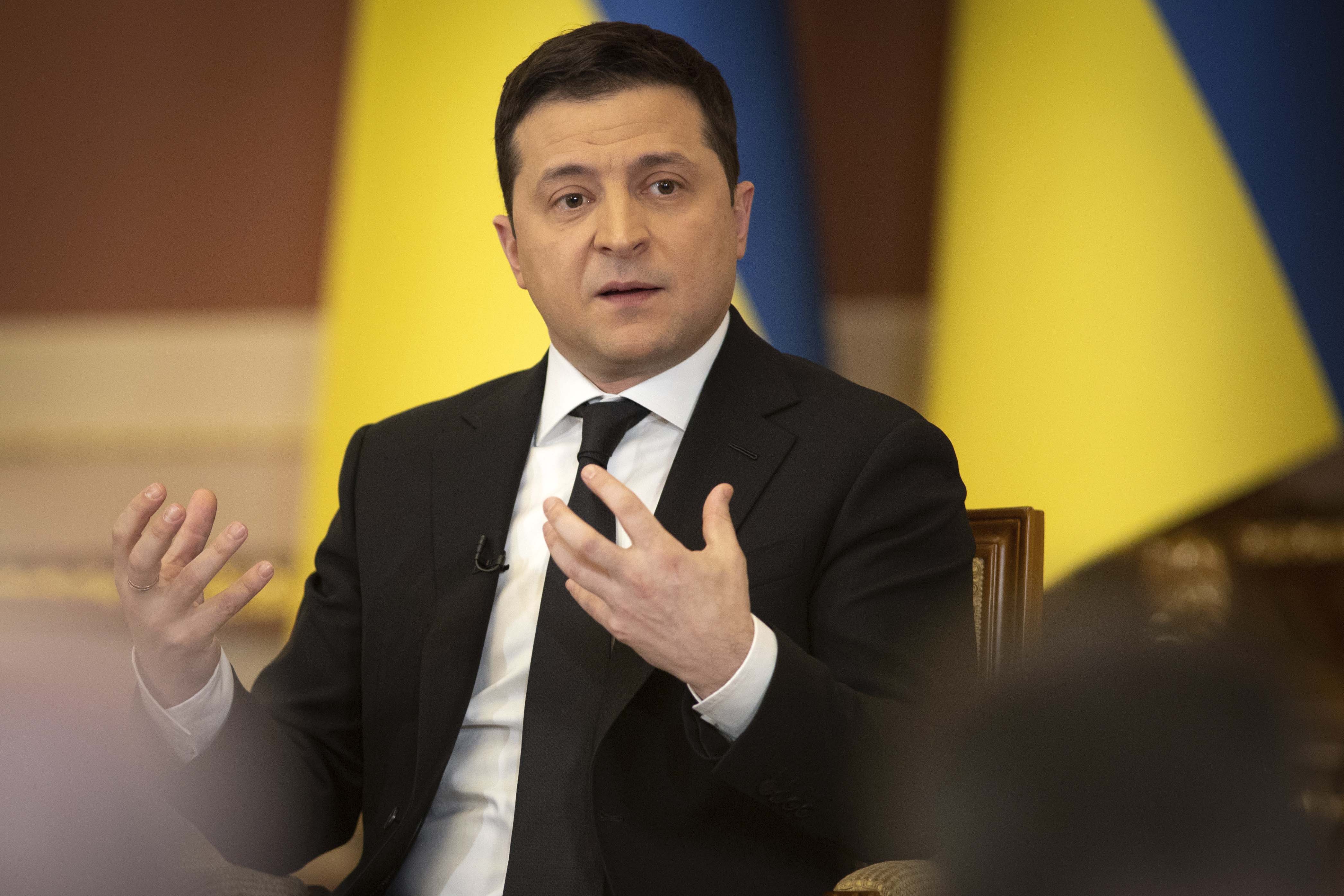
The sanctions against Russia announced in Washington which are being ‘meekly’ followed by the European partners of NATO, have limited impact on Russia. But it might hurt the flourishing economy of Europe, which has been dependent on the supplies of oil and gas from Russia. Apart from suffering financially, the European powers are expected a huge number of Ukrainians seeking refuge. Already, there are reports that over 100,000 people have already been displaced. Poland has already set up as many as nine entry points on its 535 kilometres border with Ukraine for the refugees seeking shelter in the country. In spite of the reluctance of the major European nations, France and Germany, it is just not between Russia and the US-led western powers for hegemony in the region, being fought and decided on the territories of Ukraine. It has a potential of a worldwide flare-up threatening the world peace.
Testing the Russian Patience
The people of the two enclaves were demanding since 2014 that either their areas should be merged with Russia or they should be declared independent, but Russia did not concede the request; however, when it was learnt that Ukraine is being inducted in NATO, which could undermine the Russian security, Putin decided to act and he acted quite fast. Earlier, the Russian take over of Crimea was also attributed to American policy to enter the region that too as the cost of the Russian strategic interests.
Just before recognizing the enclaves as independent countries, Putin had communicated to the western powers that they must announce that they would not induct Ukraine in NATO, but Biden rejected the request.
It may be recalled that the newly recognized territories had already declared independence in 2014, but Russia did not respond to their pleas. The political climate had started worsening during the 2010-2014, when Viktor Yanukovych, the elected president of 2010, was ousted in the 2014 Ukrainian Revolution believed to have the blessings of the western powers. Biden, who has been associated in different capacities, as chief of the foreign affairs committee of Senate and Vice President in formulating American foreign policy, except during the period of President Donald (2016-20), could have formulated policies for the region, which could meet the financial interests of the region and the west’s strategic vision, and that too without antagonizing Russia. However, he did the opposite! It goes to the credit of the US President Barrack Obama that he had rejected his suggestion to arm Ukraine with lethal weapons. It appears, Biden in his bid to satisfy the American military-industrial establishment, first signed nuclear submarine deal with Australia; did not only torpedo the French submarine proposal and gave a push to the war in Europe.
In spite of the ongoing media blitzkrieg in the west, the European powers do not exhibit much enthusiasm to join the war. On the other hand, there is a growing realization that the NATO powers would be facing unnecessary confrontation with Russia, which during the past three decades have been substantially meeting it fuel-energy needs. There is also an apprehension that the Russian confrontation with the western powers in Europe might finally help China to become the ‘unquestioned’ boss in Asia.
NATO and Russia
It is often stated that ‘history repeats itself’, but ushers in a new context and narratives. It was Yalta, where in 1945, just after the German surrender after the World War-II, the USSR ruler Stalin, the British Prime Minister Churchill and the U.S. President Franklin D. Roosevelt had decided the new borders in Europe. However, Roosevelt’s successors in Washington are again engaged in the region, but this time to oust or weaken the Stalin’s successor in Russia, the successive state of the USSR. However, it is being done under the shadow of weakening NATO and the European Union (EU). The UK has already left the EU. Its Prime Minister, Boris Johnson, is making noises regarding confrontation with Russia, but the other major powers in NATO are keeping restraint in making noises against Russia.
It is widely believed that 2014 onwards, the Russian takeover of Crimea is attributed to retaliation for use of the territory for setting up military bases of NATO in a bid to dwarf the Russian position in the region to an ’insignificant’ status.
During the May 1997 NATO summit in Paris, the Russian representatives and the NATO powers had signed the Founding Act leading to the setting up of the “NATO-Russia Permanent Joint Council” (PJC). It was assured on behalf of NATO that it had no plans to station nuclear weapons in the new member states or send in new permanent military forces. The parties stated they did not see each other as adversaries. They would be building together a lasting and inclusive peace in the Euro-Atlantic area on the principles of democracy and cooperative security. However, during the past one decade, the successive American administrations have followed the agenda to reduce the Russian influence in the region.
The Two Narratives
The world-shattering event has two different narratives; firstly, it is a master-stroke of the US-President Joe Biden to push Russia into a conflict without engaging its armed forces, which America did during the Afghan war. It would give a final blow to the Russian aspirations for a superpower status. The second narrative, which is also being advocated by Indian geo-political strategist, Brahma Chellaney, a professor of strategic studies at the Centre for Policy Research in New Delhi, is quite significant in that the West is fighting a ‘wrong enemy’, Russia, in Ukraine. Chellaney is convinced that China, which has already penetrated into the western economic system, academic institutions and other key areas of the democratic countries, is going to pose existential challenge. The threat of the Chinese hegemony is looming much larger than being assessed in the West.
However, there is no dearth of the idealists among Indians, who believe that it is an ‘opportunity’ to become a leader of the democracies by championing the cause of the Ukrainians. The proponents of liberal democracy have a large number in India as well as abroad, who demand that the Indian stand should be totally in favour of Ukraine. They argue that during the tenure of the present Indian Prime Minister Narendra Modi, India already has lost her image of a ‘liberal democracy’, and it is an opportunity to regain that image. They need to be reminded, said a senior army officer that they should visit the names of the martyrs engraved at the India Gate to understand that the West could win the two wars of the 20thcentury only because of the supreme sacrifices made by the Indian soldiers.
However, most of the strategists are opposed to any Indian move to support the western powers in Ukraine. They are certain, if India abandons the Russians, it would certainly bemuse China, which has always been finding it difficult in carrying out its nefarious activities in India due to her close ties with Russia. This friendship has deterred China either to intensify insurgency in the north-eastern states of Nagaland, Mizoram, Arunachal and Manipur, provide weapons and funds to the Naxalites in a few pockets of the Indian states, such as Orissa, Andhra Pradesh, Chhattisgarh and Maharashtra and to repeat a 1962-type full-scale aggression against its southern neighbour.
Sanctions set to Hurt European Economy
India knows that there are few takers to the sanctions in Europe. Apart from reciprocating the continuous favourable Russian support to India during the past 70 years, when abstained from voting against Russia during the crucial UN Security Council meeting, she was well aware of the ground realities. India also knows that the western sanctions, if they could really be implemented, against Russia, in fact or most likely, could become an economic burden on America’s own allies in Europe, the 27-member European Union. Russia under Putin, if the confrontation is prolonged, can upset the flourishing economies of the industrialized Western Europe, which gets 40 percent i.e. approximately 200 billion cubic meter of its energy requirements from the oil fields in Siberia; the existing supply line, called Nordic-I, passes through Ukraine.
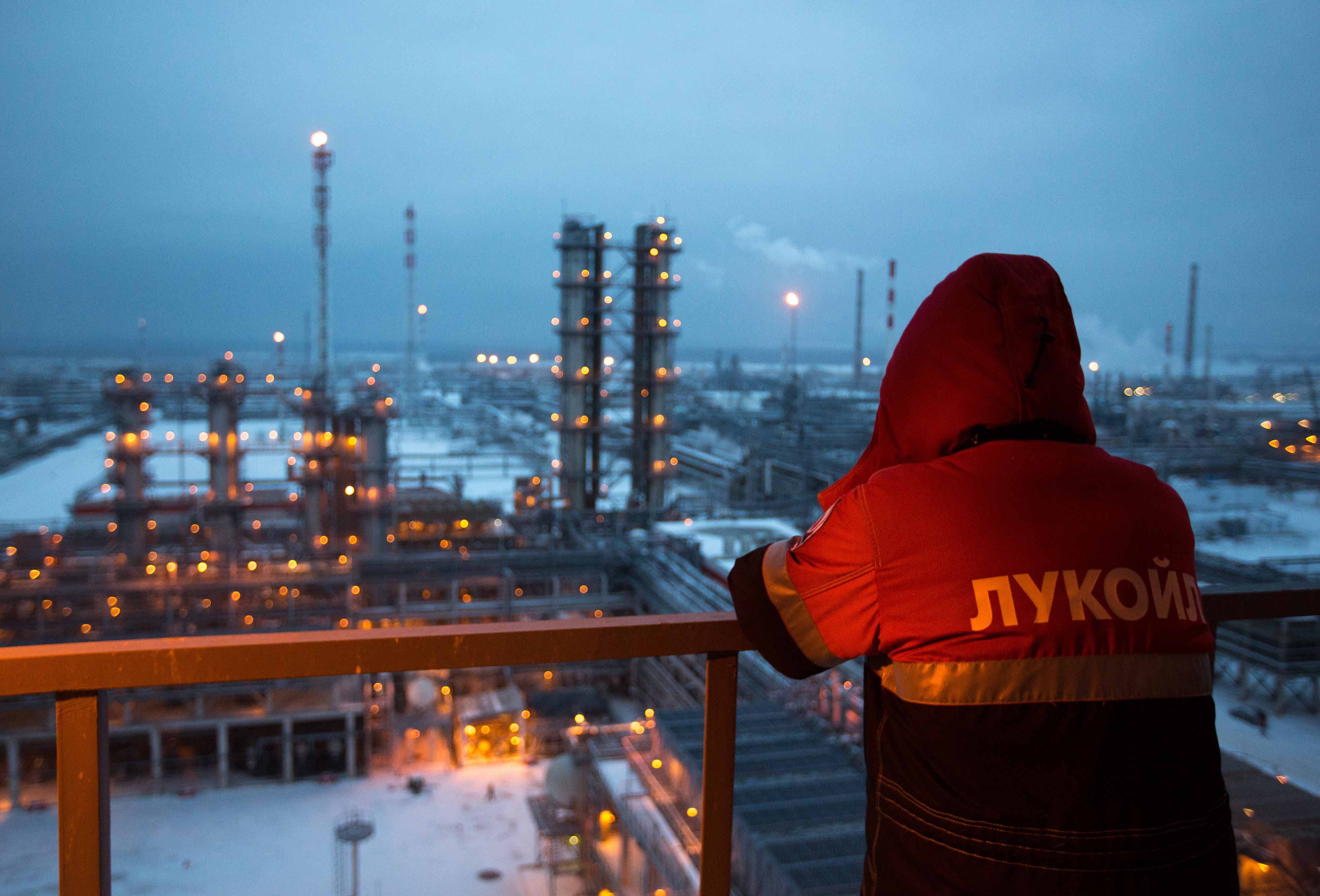
Joe Biden’s decision to impose sanctions on Nord Stream 2 AG pipeline constructor is going to hurt financially the companies of the allies, such as Shell, Austria’s OMV, France’s Engie and Germany’s Uniper and Wintershall DEA. In technical terms, the 1200-kilometers pipeline is being owned by the Russian company, Gazprom, but the western corporate has jointly coughed up billions of USD to share half of its cost. This further delay in the commissioning of the alternative supply line, Nordic-II, from the Siberian region to Germany, which could have been made operational in September 2021, is bound to have an adverse impact on the European Union.
The apprehension is that the prices of petroleum products might soar further following the ongoing Ukraine crisis. The global oil prices broke the USD 100 a barrel mark. The apprehensions are they could go as high as $120-140 per barrel. The potential of the Russian power to manipulate the oil market should not be undermined. Being the world’s third-largest exporter of oil and the second biggest exporter of natural gas, if Russia reduces its oil and gas exports, it would adversely affect all economies — India being no exception. However, with the 25-year agreement with China for the supply of petroleum products worth USD 400 billion, Russia cannot be really hurt by the sanctions.
The Quiet Diplomacy may finally bear fruit
The word ‘diplomacy’ means dialogues, talks and finally negotiations for peace, but do not go the war. The present conflict is considered just another ‘blunder’ of the American establishment. The Europeans knew, but America forced Russia to retaliate, and thus the conflict took place. During this crisis, India and China were on one page. The international stakeholders, especially China, and a few other western countries have triggered off backroom diplomatic channels for saving the situation getting further worsened. The stakes are so high that China and the western powers are for an immediate calming down of the tempers and end of the muscle-flexing. They are also apprehensive about any tangible impact of the sanctions against Russia might become counter-productive.
Similarly, the Central Asian regions comprising the former USSR republics like Tajikistan, Uzbekistan, Kyrgyzstan and many other countries have started feeling the down-trend in their money-order economies. Similarly, the German may not be able to get the much-needed fuel gas from the Russian Siberian sources for keeping their households warmer during the winter months in which more than 11 billion USD have already been invested and being delayed due to the American pressures. The much-awaited peace may also enable China to access precision minerals such as uranium, manganese, iron ore, coal etc. under a Russian umbrella.

The statement of the US Defence Secretary, Lloyd Austin, that “Russia may still avoid flaring up the crisis any further”, is being interpreted as an attempt to provide a ‘window’ for the reopening the dialogue among the concerned parties. The statement of the US Deputy Secretary of State Wendy Sherman that “Russia never fulfilled a single, solitary one of its obligations under the Minsk agreements” is just considered rhetoric. It is quite known that in spite of numerous complaints of Russia about the massive use of heavy artillery in the conflict zone, the western powers did not try to restrain the Ukrainian government.
Amidst the flexing of muscles, a number of international observers are still optimistic about the revival of the Organization for Security and Co-operation in Europe (OSCE) for retrieving the situation. The diplomatic activities have intensified following the inability of the UN Security Council even after the night-long deliberations on February 21-22 for preventing Russia’s military assertion in the region. The observation of the UN Secretary-General Antonio Guterres’s statement before the UNSC that the “violation” of the territorial integrity and sovereignty of Ukraine is inconsistent with the principles of the Charter of the United Nations, is just taken as rhetoric, while intense backroom diplomacy is being activated. The apprehension of NATO Secretary-General Jens Stoltenberg is that Russia might have now a pretext to launch a massive offensive against Ukraine for extending help to its new allies, now declared independent. The prompt approval of treaties with the new countries in the Russian parliament, Duma, has also empowered Putin to make further inroads in the Ukraine in the name supporting them.
The Past Fears and Apprehensions
Like individuals, nations too are haunted by the past. The agenda of the western colonial powers, even during the leadership of UK, has been that how to prevent the rise of Russian power. During the past decades, this policy now being led by the USA, has been pursued. With the Russian assertion as the dominant force in the Baltic region directly impacting Estonia, Latvia and Lithuania, the events of the past eight decades appear to be being revived. The Russian-German (under the Nazi rule) pact signed in August 1939, just on the eve of the outbreak of the World War-II, ensured the then USSR under Joseph Stalin to annex the three countries. However, in July 1941, Germany occupied the territories, which were returned to the USSR in 1945. However, the region enjoyed considerable independence following the fragmentation of the USSR in 1991. However, the successor state of the USSR, the Russian Federation, always considered the region strategically important, and has been explaining to the western world that if Munroe Doctrine of 1823, spelt out by the then US president, James Monroe, could be defining the USA’s security concerns in the western hemisphere, Russia’s legitimate concerns should be addressed and recognized in the region. Russia too has the right to safeguard its interests in the region. The Russian assertions, however, have caused anxiety among the countries with a shoreline at the Baltic Sea, Denmark, Germany, Poland, Lithuania, Latvia, Estonia, Finland, and Sweden.
There is no alternative to peace, but the world has been on the brink of a third world war due to inability of the big powers to settle issues only by negotiations. The Ukraine issue too is like other conflicts in the international arena, which should have been resolved by negotiations only. The choice before the world leaders is to cater to the never-ending greed of the military-industrial complex or serve the mankind.
Back channels working
The Russian President Vladimir Putin’s decision on February 27 to make the nuclear deterrent critical reminds us of the Cuban Missile Crisis of 1962, when the confrontation between the United States and the USSR had almost reached a flash point.Apart from the rhetoric on the side of the US-led western powers on the ongoing Russian-Ukrenian crisis, the secret parleys may take place any moment. It’s first indication was witnessed, when Ukrain decided to negotiate the ongoing crisis by sending it’s delegation of representatives to Belarus border.
Student volunteers step up
The young students in the eastern city of Kharkiv, just 40 kilometres from the Russian borders are practicing the use of bullet-proof vests and explosives as well as practicing evacuation drills and first aid as Ukraine prepares for a possible big assault from across the borders. It is a large city, which is under Ukrainian government control, has been a home to a number of tanks, aircrafts and tractor factories.
Implications of the sanctions
France, which had made a last-minute effort, to save the situation by requesting the US- Russia summit, was forced to back the sanctions. The French Foreign Minister Jean-Yves Le Drianance’s and the head of the foreign affairs in the 27-member European Union, Josep Borrell, have reluctantly spelt out a wide-range of sanctions against Russia. The sanctions include the Russian entities, all members of Duma and the political elite, which would involve travel bans and the freezing of assets.
The various documents available from the sources such as the Transparency International and Pandora Papers, the seizure of the funds estimated to be a few billion USD either deposited or invested in UK, and the huge properties obtained by the Russian ruling elites in various parts of Europe. It was expected that they would deter Putin from adopting a confrontational approach, but it did not work.
The Story of the two Jewels
If India was a jewel in the British crown, Ukraine has been a jewel of the USSR. With the collapse of the USSR in 1990, the US-led western powers have been active to lure the region to their camp. They also did not disapprove the deep intrusion of China in the Central Asian region as long as it acts as a counter-weight to Russia in the region. However, a month before the Ukrainian developments, Russian forces marched into Kazakhstan. Initially, China objected to the Russian intervention but promptly retraced its statement with an apology published in the Global Times, an official English newspaper of China. Putin reciprocated this gesture by attending the Winter Olympics in Beijing last month, and since then China and Russia have been behaving like close allies on the world theatre of power play.
The western powers’ inability to address the Russian concerns during the 1990 decade and also if they had allowed Russia in the NATO, the situation had not turned ugly. Their reluctance could be attributed to the Tsar years of the imperial Russia, when according to British narratives, two secret plans were hatched to chase out the British from India in the 19th century. In 1801, it is claimed that Tsar Paul I had hatched a plan to invade India with the help of Napoleon Bonaparte. In 1854, half-a-century later, a Russian General, Alexander Osipovich Duhamel, had submitted a plan to Tsar Nicholas-I for ousting British from India, the jewel of the British Empire. Therefore, it is not surprising that Putin has decided to reclaim Ukraine, which was considered a ‘jewel’ of the USSR.








